Reading development Alphabet Worksheets for Ages 5-9
5 filtered results
-
From - To
Discover our engaging Reading Development Alphabet Worksheets, designed for children ages 5-9! These printable resources support young learners by fostering letter recognition, phonics skills, and reading fluency. Each worksheet features vibrant illustrations and interactive exercises that make learning the alphabet fun and captivating. Your child will explore beginning sounds, practice writing letters, and improve their vocabulary—all essential building blocks for reading success. Perfect for at-home or classroom use, our worksheets cater to various learning styles and encourage a love for reading early on. Start your child’s reading journey today and watch them grow into confident readers!
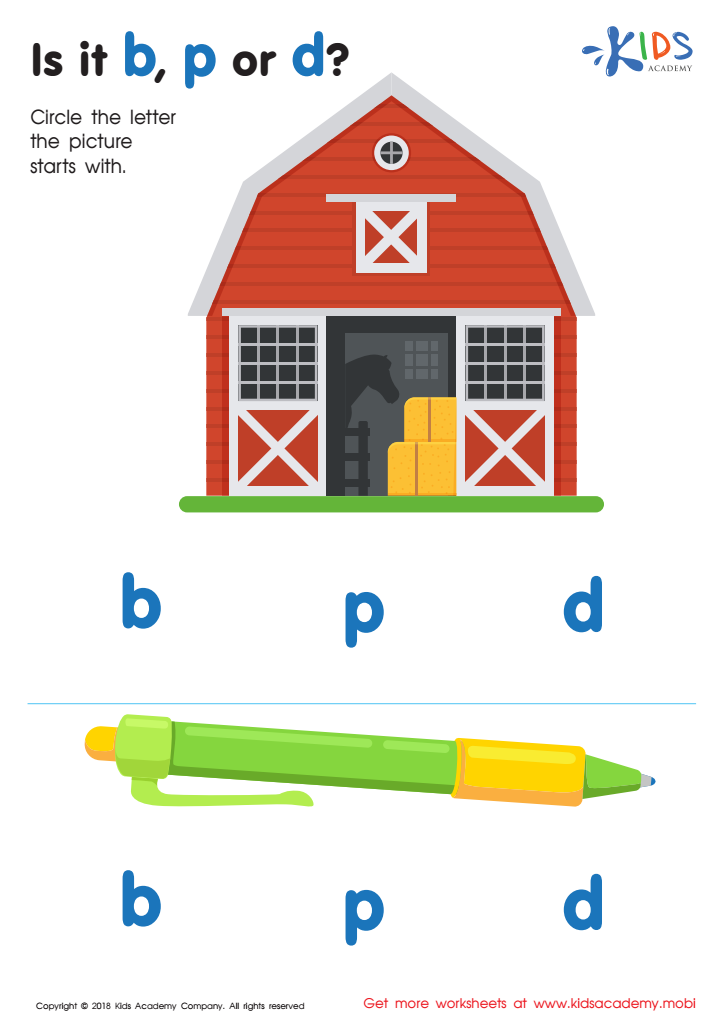

Is it b, p or d? Worksheet
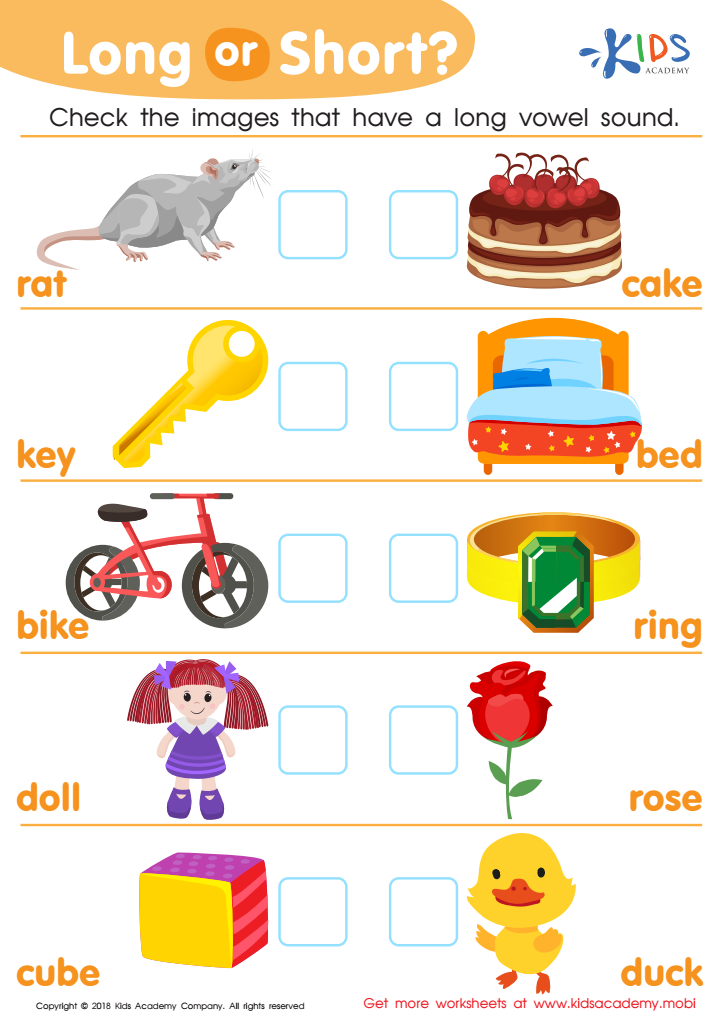

Long or Short Reading Worksheet
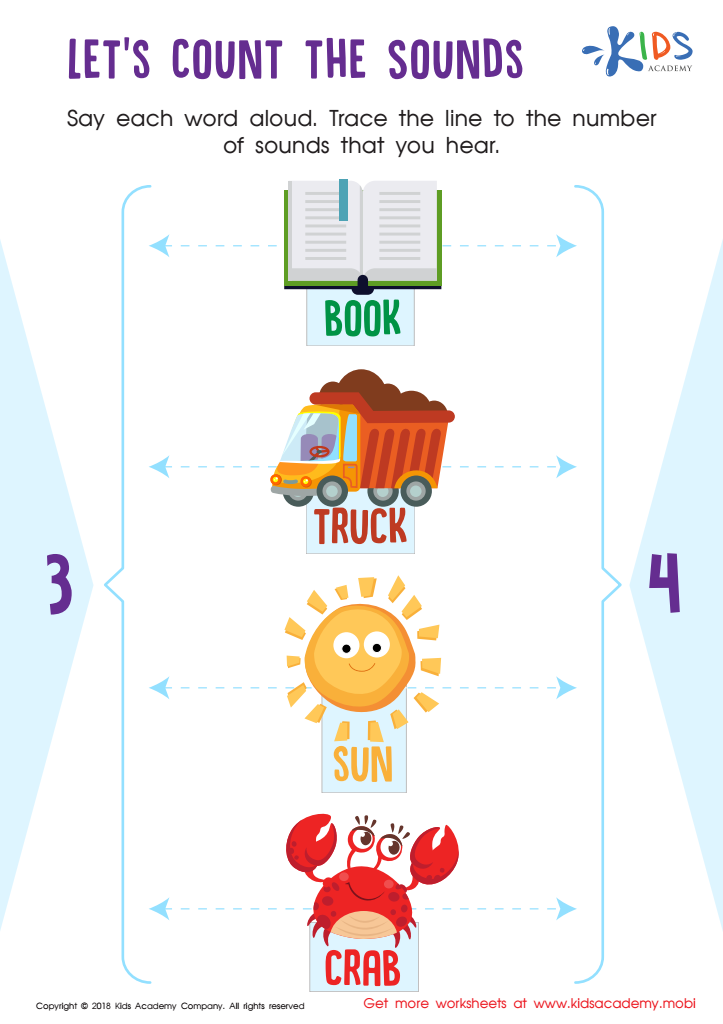

Let's Count the Sounds Worksheet
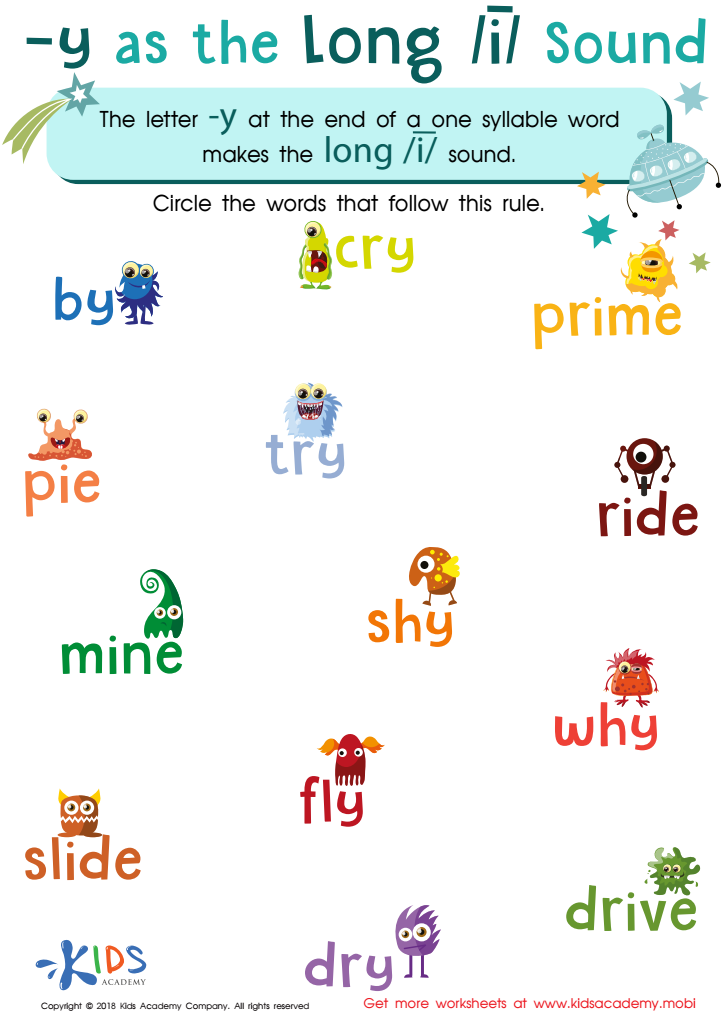

Reading: Y as Long I Worksheet
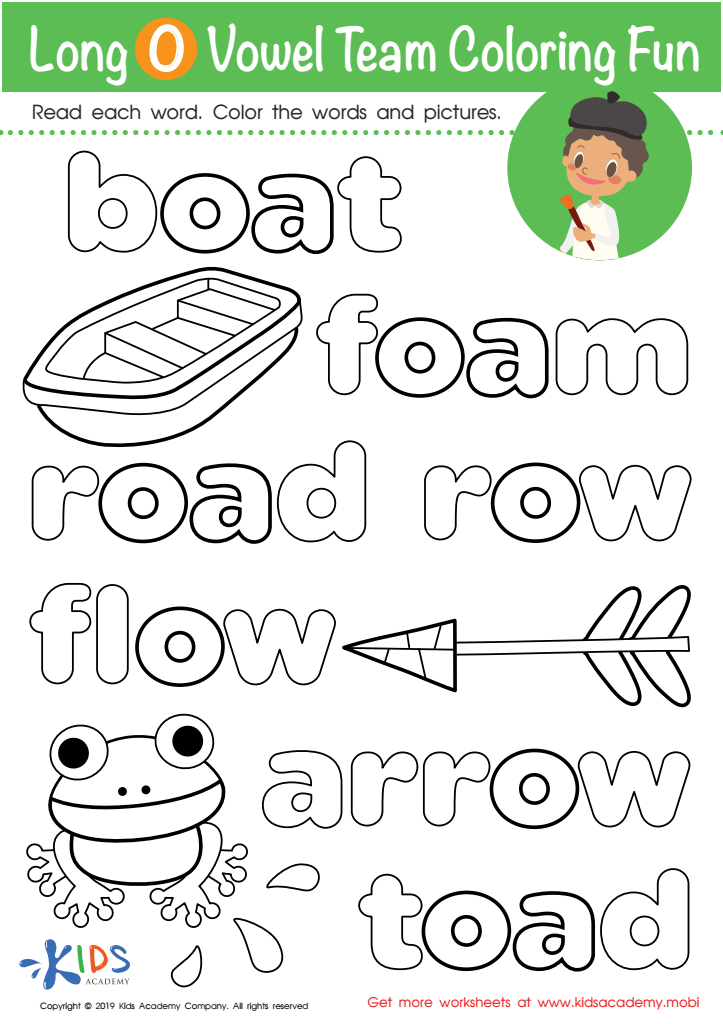

Long O Vowel Team Coloring Worksheet
Reading development from ages 5 to 9 is a critical phase in a child's education, and both parents and teachers play vital roles in nurturing this skill. During these formative years, children transition from recognizing letters to decoding words, which lays the foundation for future academic success. Mastery of the alphabet is directly linked to the ability to read and comprehend more complex texts later on, making it essential for overall literacy development.
Engaging with the alphabet helps young learners improve phonemic awareness, vocabulary, and spelling skills. When parents and teachers prioritize reading activities, such as letter recognition games and interactive storytelling, they foster a love for reading that can inspire lifelong learning. Moreover, early reading skills contribute to better performance in other subjects, bolstering a child's self-confidence and enthusiasm for school.
Parental involvement can enhance the impact of classroom instruction. When educators and families work together, they create a supportive environment that encourages exploration and curiosity. Ultimately, ensuring robust reading development during these years can change a child’s academic trajectory, equipping them with essential skills for navigating not just their education, but life beyond the classroom.
 Assign to My Students
Assign to My Students















